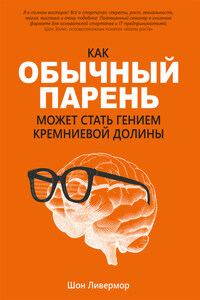The twelve were with him as well as some women who had been cured of evil spirits and infirmities.
â¦Joanna, the wife of Herodâs steward Chuzaâ¦and many others, who provided for them out of their own resources.
âLuke 8:1-3
The house in Nazareth is empty now. No one would presume to live there since Mary went away. They cannot risk inheriting her misfortune, a widow with a crucified son. Still, it is a sacred place. Someone has to oversee its safekeeping.
As an older woman Mary traveled to distant cities with John, the youngest of her sonâs followers, watching over him like a mother. In those years it was easier to move about the empire. Claudius ruled from Rome, and for once the foreigner who controlled Judea felt kindly toward the Hebrews.
It is hard to believe, after twelve years of Nero, that such a time ever existed. Jerusalem has been under siege since Passover, and the Roman blockade makes it impossible for food to get beyond the city gates. For us, here in the north, news of the struggle comes with the caravans. The worst of it seems to reach us with the speed of an arrow. There was the man who swallowed his gold before he tried to escape the Holy City. When the soldiers caught him, they sliced him open and pulled the coins from his belly. He was still alive. He witnessed it.
Maryâs empty house was my consolation after she went away. I missed her so much that I spent hours there, alone. Imagining she was still with me, I saw things about her I had not noticed before. Her hair, once lavish and dark, had turned the silvery color of a moonstone. Her skin was still the warm shade of an almond shell, but the flash of pink that once tinted her cheeks had faded. The passing years wore her edges smooth as sea glass.
One afternoon in my daydreams she walked past me to the grain cistern, gathered dried kernels in her hands and poured them into storage sacks. She pinched the lice from the nearby bin of ripening grain. Without stopping to greet me, she lifted a clay jug from the shelf and went out toward the well, pausing long enough to look at me contentedly. I heard her whisper the prayers of blessing and I began to recite them with her. Before I met Mary, I did not know any prayers.
In her empty house I started to remember things. There was the scent of rosemary on the cooking pots and the shelf of baskets that waited to be filled with sweet cakes from her kitchen. All of what she owned was worn down with use.
Her small living quarters hardly seemed the sort of place to attract visitors at all hours, but so many came, hoping to gain her favor, that a good number had to be turned away at the gate. Looking back on those bewildering days, I still wonderâdid any of us who asked for her help truly understand, or even suspect, what Mary was prepared to do for those she loved? When the time came, she would risk her life. Some might even say, her soul.
One afternoon a shower of dirt interrupted my reverie. It fell from the ceiling of Maryâs house, where the roof had worn thin. Above my head, palm fronds whistled like wind chimes in the breeze. I could see them through the holes in the ceiling. Straw poked through the plaster. I hadnât noticed.
To restore such a ruin was my way of honoring Mary, but it was a strange ambition for a woman like me who did not know how to do housework. I, Joanna, wife of Chuza, Herod Antipasâs chief steward, was raised to be mistress of an estate. I had little experience with house cleaning or other manual labor. For Maryâs sake, I learned.
From the time I made my decision, I began to rise from my bed before the sun lit the upper rooms of my house. Pulling myself from beneath cool linen sheets, I prepared for a day of repair work on Maryâs crumbling house. Loading storage baskets with jugs of wine, flasks of oil, perfume bottles, old jewelryâall items I could exchange for craftsmenâs servicesâI left the marble gods and colonnades of my Roman-style city of Sepphoris for the barley fields of eastern Galilee. It was like traveling backward in time.








